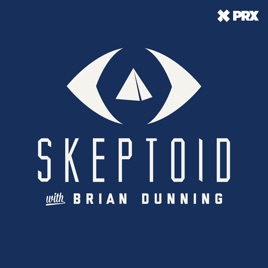
Advertise on podcast: ABA Inside Track
Rating
4.7 from
Country
This podcast has
457 episodes
Language
Publisher
Explicit
No
Date created
2016/03/09
Average duration
70 min.
Release period
7 days
Description
Wish you could do a better job keeping up with peer-reviewed journals? Why not listen to a podcast where behavior analysts discuss a variety of fascinating topics and the research related to them? Now you can spend your extra time thinking of ways to save the world with ABA.
Social media
Check ABA Inside Track social media presence
Podcast episodes
Check latest episodes from ABA Inside Track podcast
Discussion on Neurodiversity
2024/02/21
In what we’re planning as an ongoing series of episodes over the next year (and beyond), ABA Inside Track will be talking about neurodiversity: What it is, what it means for behavior analysts, and why understanding and discussing it with open ears, the courage to be uncomfortable, and the importance of listening is key to the future of our field. For now, here’s an episode to get our conversation started.
This episode is available for 1.0 LEARNING CEU.
Articles discussed this episode:
Veneziano, J. & Shea, S. (2023). They have a voice; are we listening? Behavior Analysis in Practice, 16, 127-144. doi: 10.1007/s40617-022-00690-z
Graber, A. & Graber, J. (2023). Applied behavior analysis and the abolitionist neurodiversity critique: An ethical analysis. Behavior Analysis in Practice, 16, 921-937. doi: 10.1007/s40617-023-0780-6
Donaldson, A. L., Krejcha, K., & McMillin, A. (2017). A strengths-based approach to autism: Neurodiversity and partnering with the autism community. Perspectives of the ASHA Special Interest Groups, 2, 56-68. doi: 10.1044/persp2.SIG1.56
If you're interested in ordering CEs for listening to this episode, click here to go to the store page. You'll need to enter your name, BCBA #, and the two episode secret code words to complete the purchase. Email us at abainsidetrack@gmail.com for further assistance.
more
(LISTENER CHOICE) Episode 267 - Preventing Burnout
2024/02/14
As voted on by our Patrons, we’re talking about ways to prevent that pernicious problem for professionals: Burnout. Hopefully that’s not just because a high percentage of BCBAs are feeling unappreciated, constantly in unresolved conflict with clients and co-workers, and highly dissatisfied with their current lot in life. Even if you are, this episode will cover some ways that you can reflect on the burnout process to avoid falling fully into its clutches (and, if you’re a boss, some steps that you might want to ensure you’re taking!).
This episode is available for 1.0 LEARNING CEU.
Wish that CE was free? Subscribe on our Patreon page to see the full recording and get a discount for 100% off your purchase.
Articles discussed this episode:
Novack, M.N. & Dixon, D.R. (2019). Predictors of burnout, job satisfaction, and turnover in behavior technicians working with individuals with autism spectrum disorder. Review Journal of Autism and Developmental Disorders, 6, 413-421. doi: 10.1007/s40489-019-00171-0
Kazemi, E., Carter, C., & Davies, M.S. (2022). Workplace conflict in applied behavior analysis: Prevalence, impact, and training. Behavior Analysis in Practice, 15, 608-618. doi: 10.1007/s40617-021-00649-6
Austin, A. & Fiske, K. (2023). Evaluating the relationship between compassion, perceived supervisor support, and burnout among ABA staff. Behavior Analysis in Practice. doi: 10.1007/s40617-023-00813-0
If you're interested in ordering CEs for listening to this episode, click here to go to the store page. You'll need to enter your name, BCBA #, and the two episode secret code words to complete the purchase. Email us at abainsidetrack@gmail.com for further assistance.
more
February 2024 Preview
2024/02/07
Man, January went so long that we barely had time to stop to record our February preview. But whether in a car or on a boat, we’ve got behavior analytic discussions to fill 29 days. This month we’re joined by guest, Dr. Noor Syed, to review her work on creating sustainable equitable practices in research and higher education. We also begin with the first part in what we hope will be an ongoing discussion about neurodiversity and review some recent articles on combatting workplace burnout, courtesy of our Patreon listeners. And, yes, Rob really recorded this episode from his (parked) car.
Articles for February 2024
(LISTENER CHOICE) Preventing Burnout
Novack, M.N. & Dixon, D.R. (2019). Predictors of burnout, job satisfaction, and turnover in behavior technicians working with individuals with autism spectrum disorder. Review Journal of Autism and Developmental Disorders, 6, 413-421. doi: 10.1007/s40489-019-00171-0
Kazemi, E., Carter, C., & Davies, M.S. (2022). Workplace conflict in applied behavior analysis: Prevalence, impact, and training. Behavior Analysis in Practice, 15, 608-618. doi: 10.1007/s40617-021-00649-6
Austin, A. & Fiske, K. (2023). Evaluating the relationship between compassion, perceived supervisor support, and burnout among ABA staff. Behavior Analysis in Practice. doi: 10.1007/s40617-023-00813-0
Discussion on Neurodiversity
Veneziano, J. & Shea, S. (2023). They have a voice; are we listening? Behavior Analysis in Practice, 16, 127-144. doi: 10.1007/s40617-022-00690-z
Graber, A. & Graber, J. (2023). Applied behavior analysis and the abolitionist neurodiversity critique: An ethical analysis. Behavior Analysis in Practice, 16, 921-937. doi: 10.1007/s40617-023-0780-6
Donaldson, A. L., Krejcha, K., & McMillin, A. (2017). A strengths-based approach to autism: Neurodiversity and partnering with the autism community. Perspectives of the ASHA Special Interest Groups, 2, 56-68. doi: 10.1044/persp2.SIG1.56
Systemic and Sustainable Change Toward Equity w/ Dr. Noor Syed
Glenn, S.S., Malott, M.E., Andery, M.A.P.A., Benvenuti, M., Houmanfar, R.A., Sandaker, I., Todorov, J.C., Tourinho, E.Z., & AbreVasconcelos, L. (2016). Toward consistent terminology in a behaviorist approach to cultural analysis. Behavior and Social Issues, 25, 11-27. doi: 10.5210/bsi.v.25i0.6634
Syed, N.Y., Mellon, L., & Kristiansen, S. (2023). Equity, diversity, inclusion, and accessibility in research. In D.J. Cox, N.Y., Syed, M.T. Brodhead, & S.P. Quigley (Eds.) Research ethics in behavior analysis: From laboratory to clinic and classroom (pp. 63-86). Academic Press. doi: 10.1016/B978-0-323-90969-3.00012-8
Hilton, J., Syed, N., Weiss, M.J., Tereshko, L. Marya, V., Marshall, K., Gatzunis, K., Russeel, C., & Driscoll, N. (2021). Initiatives to address, diversity, equity, and inclusion within a higher education ABA department. Behavior and Social Issues, 30, 58-81. doi: 10/1007/s42822-021-00082-y
more
Error Correction
2024/01/31
Making mistakes isn’t all bad. Unless those mistakes result in faulty stimulus control during skill acquisition. But, fret not, this week we dive into some of the options available as you craft your programs to respond to errors in a way to maximize learnining efficiency while taking the preferences of your client into account. Basically, how to teach the fastest while being the least annoying. And does correcting errors actually work better than avoiding them?
This episode is available for 1.0 LEARNING CEU.
Articles discussed this episode:
Leaf, J.B., Cihon, J.H., Ferguson, J.L., Milne, C.M., Leaf, R., & McEachin. (2020). Comparing error correction to errorless learning: A randomized clinical trial. The Analysis of Verbal Behavior, 36, 1-20. doi: 10.1007/s40616-019-00124-y
Carroll, R.A., Joachim, B.T., St. Peter, C.C., & Robinson, N. (2015). A comparison of error-correction procedures on skill acquisition during discrete-trial instruction. Journal of Applied Behavior Analysis, 48, 257-273. doi: 10.1002/jaba.205
Carroll, R.A., Owsiany, J., & Cheatham, J.M. (2018). Using an abbreviated assessment to identify effective error-correction procedures for individual learners during discrete-trial instruction. Journal of Applied Behavior Analysis, 51, 482-501. doi: 10.1002/jaba.460
Cariveau, T., Montilla, A.L.C., Gonzalez, E., & Ball, S. (2019). A review of error correction procedures during instruction for children with developmental disabilities. Journal of Applied Behavior Analysis, 52, 574-579. doi: 10.1002/jaba.524
If you're interested in ordering CEs for listening to this episode, click here to go to the store page. You'll need to enter your name, BCBA #, and the two episode secret code words to complete the purchase. Email us at abainsidetrack@gmail.com for further assistance.
more
Training and Experience Foundations for Working with Adults with Significant Behavioral Challenges w/ Dr. John Guercio
2024/01/24
This week we return to one of of favorite (and most important topics): training others to work with adults with significant disabilities. And, in our excitement to talk to Dr. John Guercio on everything this entails, we almost forgot to talk about the specific articles! Whether looking at the primary means of supporting staff skill growth or utilizing effective, evidence-based treatment plans and curricula, we leave no stone unturned in learning everything we can about supporting adult clients (within the timeframe of our podcast length). Want to see more? Check out Dr. Guercio’s core competencies book for more.
This episode is available for 1.0 LEARNING CEU.
Articles discussed this episode:
Wilson, A.N., Kasson, E.M., Gratz, O., & Guercio, J.M. (2015). Exploring the clinical utility of a stimulus avoidance assessment to enhance a relaxation training model. Behavior Analysis in Practice, 8, 57-61. doi: 10.1007/s40617-014-0035-y
Guercio, J., Davis, P., Faw, G., McMorrow, M., Ori, L., Berkowitz, B., & Nigra, M. (2002). Increasing functional rehabilitation in acquired brain injury treatment: Effective appliations of behavioural principles. Brain Injury, 16, 849-860. doi: 10.1080/02699050210131957
Guercio, J.M. & Dixon, M.R. (2010). Improving the quality of staff and participant interaction in an acquired brain injury organization. Journal of Organizational Behavior Management, 30, 49-56. doi: 10.1080/01608060903529780
Soldner, J.L., Rehfeldt, R.A., Guercio, J., & Dillen, J. (2005). The use of computer activity schedules to increase initiation of and engagement in domestic and leisure activities in an adult with acquired brain injury. European Journal of Behavior Analysis, 6, 173-177. doi: 10.1080/15021149.2005.11434259
If you're interested in ordering CEs for listening to this episode, click here to go to the store page. You'll need to enter your name, BCBA #, and the two episode secret code words to complete the purchase. Email us at abainsidetrack@gmail.com for further assistance.
more
(PREVIEW) Acceptance and Commitment Therapy for Behavior Analysts Book Club
2024/01/22
Enjoy a short preview of our latest full-length Book Club episode. Want to hear the whole thing and get 2 CEs for free? Subscribe to our Patreon today at the premium $10+ levels for that plus other bonuses!
While we've covered acceptance and commitment therapy a few times before, we'd never really dug too deeply into exactly HOW ACT is behavior analytic. As in the exact mechanisms by which the fabulous steps of the hexaflex "work" as described in 100% behavioral terms. Now, thanks to our listeners (and book authors Dixon, Hayes, and Belisle), we can! Join us as we learn about ACT from theory to practice in our two-hour discusion of "Acceptance and Commitment Therapy for Behavior Analysts". Plus, you'll finally get to discover which branch of the hexaflex is our all-time favorite! Is it acceptance? Committed action? Self-as context? No, no one likes self-as context.
This full version of this episode is available for 2.0 LEARNING CEUs.
Content discussed in this episode:
Dixon, M.R., Hayes, S.C., & Belisle, J. (2023). Acceptance and commitment therapy for behavior analysts: A practice guide from theory to treatment. Routledge.
more
Research Grab-bo Baggins
2024/01/17
Far over standard celeration graphs cold
To research labs deep and operant chambers old
We must respond, ere break of a targeted duration
To mand our pale enchanted reinforcers
This episode is available for 1.0 LEARNING CEU.
Articles discussed this episode:
Heward, W.L. Kimball, J.W., Heckaman, K.A., & Dunne, J.D. (2021). In his own words: Siegfried “Zig” Englemann talks about what’s wrong with education and how to fix it. Behavior Analysis in Practice, 14, 766-774. doi: 10.1007/s40617-021-00636-x
Greenwald, A. (2023). Prompting and modeling of coping strategies during childbirth. Behavior Analysis in Practice. doi: 10.1007/s40617-023-00837-6
Sheehan, A (2022). The development of a participatory tool to enable autistic people to influence the interior design of their homes. Good Autism Practice, 23, 13-26.
Shores, R. E., Gunter, P. L., & Jack, S. L. (1993). Classroom Management Strategies: Are They Setting Events for Coercion? Behavioral Disorders, 18, 92–102. http://www.jstor.org/stable/23887084
If you're interested in ordering CEs for listening to this episode, click here to go to the store page. You'll need to enter your name, BCBA #, and the two episode secret code words to complete the purchase. Email us at abainsidetrack@gmail.com for further assistance.
more
The Ethics of Fad Treatments
2024/01/10
Just because something is popular doesn’t make it right. And this week we talk about the most unethical example of this in reviewing the costs and dangers of fad treatments. While we spend a good deal of time discussing sensory integration, the hypothesis behind it as a treatment, and its effectivness (or lack thereof) in behavioral treatment, we also review some of the other fad treatments we’ve seen over the years, and how you can be ethical, avoid fads, AND not look like a big jerk.
This episode is available for 1.0 ETHICS CEU.
Articles discussed this episode:
Zane, T., Davis, C., & Rosswurm, M. (2008). The cost of fad treatments in autism. Journal of Early and Intensive Behavior Intervention, 5, 44-51. doi: 10.1037/h0100418
Schreck, K.A. & Miller, V.A. (2010). How to behave ethically in a world of fads. Behavior Interventions, 25, 307-324. doi: 10.1002/bin.305
Moore, K.M., Cividini-Motta, C.C., Clark, K.M., & Ahearn, W.H. (2015). Sensory integration as a treatment for automatically maintained stereotypy. Behavioral Interventions, 30, 95-111. doi: 10.1002/bin.1405
If you're interested in ordering CEs for listening to this episode, click here to go to the store page. You'll need to enter your name, BCBA #, and the two episode secret code words to complete the purchase. Email us at abainsidetrack@gmail.com for further assistance.
more
January 2024 Preview
2024/01/03
Happy 2024, y’all! And boy are we coming in hot with the latest fads in treament and your ethical responsibility to respond skeptically to them. After that we chat with Dr. John Guercio about what’s new with effective programming curricula for adults with disabilities and take a dive into the latest in error correction research. Then it all goes off a cliff with our most dramatic Grab Bag episode ever with Book Club Guy, Alan Haberman. Apparently our New Year’s Resolution was to win an Oscar.
Articles for January 2024
(ETHICS) Ethics of Fad Treatments
Zane, T., Davis, C., & Rosswurm, M. (2008). The cost of fad treatments in autism. Journal of Early and Intensive Behavior Intervention, 5, 44-51. doi: 10.1037/h0100418
Schreck, K.A. & Miller, V.A. (2010). How to behave ethically in a world of fads. Behavior Interventions, 25, 307-324. doi: 10.1002/bin.305
Moore, K.M., Cividini-Motta, C.C., Clark, K.M., & Ahearn, W.H. (2015). Sensory integration as a treatment for automatically maintained stereotypy. Behavioral Interventions, 30, 95-111. doi: 10.1002/bin.1405
Grab-Bo Baggins w/ Alan Haberman
Heward, W.L. Kimball, J.W., Heckaman, K.A., & Dunne, J.D. (2021). In his own words: Siegfried “Zig” Englemann talks about what’s wrong with education and how to fix it. Behavior Analysis in Practice, 14, 766-774. doi: 10.1007/s40617-021-00636-x
Greenwald, A. (2023). Prompting and modeling of coping strategies during childbirth. Behavior Analysis in Practice. doi: 10.1007/s40617-023-00837-6
Sheehan, A (2022). The development of a participatory tool to enable autistic people to influence the interior design of their homes. Good Autism Practice, 23, 13-26.
Shores, R. E., Gunter, P. L., & Jack, S. L. (1993). Classroom Management Strategies: Are They Setting Events for Coercion? Behavioral Disorders, 18, 92–102. http://www.jstor.org/stable/23887084
Curriculum for Adults w/ Dr. John Guercio
Wilson, A.N., Kasson, E.M., Gratz, O., & Guercio, J.M. (2015). Exploring the clinical utility of a stimulus avoidance assessment to enhance a relaxation training model. Behavior Analysis in Practice, 8, 57-61. doi: 10.1007/s40617-014-0035-y
Guercio, J., Davis, P., Faw, G., McMorrow, M., Ori, L., Berkowitz, B., & Nigra, M. (2002). Increasing functional rehabilitation in acquired brain injury treatment: Effective appliations of behavioural principles. Brain Injury, 16, 849-860. doi: 10.1080/02699050210131957
Guercio, J.M. & Dixon, M.R. (2010). Improving the quality of staff and participant interaction in an acquired brain injury organization. Journal of Organizational Behavior Management, 30, 49-56. doi: 10.1080/01608060903529780
Soldner, J.L., Rehfeldt, R.A., Guercio, J., & Dillen, J. (2005). The use of computer activity schedules to increase initiation of and engagement in domestic and leisure activities in an adult with acquired brain injury. European Journal of Behavior Analysis, 6, 173-177. doi: 10.1080/15021149.2005.11434259
Error Correction
Leaf, J.B., Cihon, J.H., Ferguson, J.L., Milne, C.M., Leaf, R., & McEachin. (2020). Comparing error correction to errorless learning: A randomized clinical trial. The Analysis of Verbal Behavior, 36, 1-20. doi: 10.1007/s40616-019-00124-y
Carroll, R.A., Joachim, B.T., St. Peter, C.C., & Robinson, N. (2015). A comparison of error-correction procedures on skill acquisition during discrete-trial instruction. Journal of Applied Behavior Analysis, 48, 257-273. doi: 10.1002/jaba.205
Carroll, R.A., Owsiany, J., & Cheatham, J.M. (2018). Using an abbreviated assessment to identify effective error-correction procedures for individual learners during discrete-trial instruction. Journal of Applied Behavior Analysis, 51, 482-501. doi: 10.1002/jaba.460
Cariveau, T., Montilla, A.L.C., Gonzalez, E., & Ball, S. (2019). A review of error correction procedures during instruction for children with developmental disabilities. Journal of Applied Behavior Analysis, 52, 574-579. doi: 10.1002/jaba.524
Acce
more
Bonus Episode 32 - The Year in ABA (2023) w. Matt Cicoria
2023/12/27
It’s our annual year-end wrap up show with our podcasting pal, Matt Cicoria from Behavioral Observations! And boy, is there a lot to review from 2023. First, a somber start with a remembrance of some of the amazing behavior analysts the field lost this past year. Then a discussion of some of the biggest issues facing our profession: Supervision! Ed reform! Public Policy reform! Plus, nonsense end-of-year tangents and plans for 2024.
Articles mentioned in this episode:
Iwata, B.A., Dorsey, M.F., Slifer, K.J., Bauman, K.E., & Richman, G.S. (1982/1994). Toward a functional analysis of self-injury. Journal of Applied Behavior Analysis, 27, 197-209. doi: 10.1901/jaba.1994.27-197
Johnston, J.M., Pennypacker, H.S., & Green, G. (2020). Strategies and tactics of behavioral research and practice. (4th ed.). Routledge.
Twyman, J., Pinkelman, S., Kenyon, S., Heward, W.L., Lattal, K.A., & Critchfield, T.S. (2023). Ronnie Detrich (1946-2023): A versatile behavior analyst who demanded more of behavior analysis and education. Behavior Analysis in Practice. doi: 10.1002/jaba.1043
Griffith, A.K. & Ré, T.C. (Ed.) (2024). Disseminating Behavioral Research. Springer. doi: 10.1007/978-3-031-47343-2
Hartley, B.K., Courtney, W.T., Rosswurm, M., & LaMarca, V.J. (2016). The apprentice: An innovative approach to meet the behavior analysis certification board’s supervision standards. Behavior Analysis in Practice, 9, 329-338. doi: 10.1007/s40617-016-0136-x
Gingles, D., Watson-Thompson, J., Anderson-Carpenter, K.D., Tarbox, J., & Peterson, S.M. (2022). Leading the charge: A look inside the Behavior Analysis in Practice emergency series of publications on systemic racism and police brutality. Behavior Analysis in Practice, 15, 1015-1022. doi: 10.1007/s40617-022-00759-9
more
Collaboration and Leadership in the School Setting w. Dr. Bruce Tinor
2023/12/20
While we’ve talked about organizational behavior management for business and leadership and and collaboration in the behavior analytic world, what if we put it all that research together and applied it to the school setting? I bet you’d get something like this week’s episode. Add in special guest Dr. Bruce Tinor leading the conversation with additional experience as a school principal and behavior analyst and you’ve got a recipe for fixing the education system. Or, at least, we think so.
This episode is available for 1.0 LEARNING CEU.
Articles discussed this episode:
Komaki, J.L., Minnich, M.L.R., Grotto, A.R., Weinshank, B., & Kern, M.J. (2011). Promoting critical operant-based leadership while decreasing ubiquitous directives and exhortations. Journal of Organizational Behavior Management, 31, 236-261. doi: 10.1080/01608061.2011.619393
Krapfl, J.E. & Kruja, B. (2015). Leadership and culture. Journal of Organizational Behavior Management, 35, 28-43. doi: 10.1080/01608061.2015.1031431
Starling, N.R., Vissicchi, C., & Grottke, K. (2021). Opening the educational leadership door: Promoting the collaboration of OBM and education. Journal of Organizational Behavior Management, 41, 32-63. doi: 10.1080/01608061.2020.1837709
If you're interested in ordering CEs for listening to this episode, click here to go to the store page. You'll need to enter your name, BCBA #, and the two episode secret code words to complete the purchase. Email us at abainsidetrack@gmail.com for further assistance.
more
Strategies for Addressing Escape-Maintained Behavior
2023/12/13
Let’s get down to some nuts and bolts treatment updates this week with one of the most common maintaining variables for problem behavior: escape! We’ll start off with a podcast favorite in the form of a treatment-choice flowchart then add in our combined near-60 years of experience with some illustrative case examples to model how to judge which treatment is right for your client. It’s like a day hanging out at the ABA Inside Track offices…if we weren’t podcasting, that is.
This episode is available for 1.0 LEARNING CEU.
Articles discussed this episode:
Geiger, K.B., Carr, J.E., & LeBlanc, L.A. (2010). Function-based treatments for escape-maintained problem behavior: A treatment-selection model for practicing behavior analysts. Behavior Analysis in Practice, 3, 22-32. doi: 10.1007/BF03391755
If you're interested in ordering CEs for listening to this episode, click here to go to the store page. You'll need to enter your name, BCBA #, and the two episode secret code words to complete the purchase. Email us at abainsidetrack@gmail.com for further assistance.
more
Podcast reviews
Read ABA Inside Track podcast reviews
Mi'love Jean
2024/02/08
Worth every minute
I actually started listening to this podcast while I was studying as an RBT. Now, that I’m a BCBA it’s great reuniting once again. This podcast is ent...
more
PlatypusUnicorn
2024/02/08
Eh
This podcast is okay for hearing about research on specific topics and it’s nice that you can get CEUs from it, but it’s so hard to listen to sometime...
more
steady study buddy
2023/09/01
Awesome resource for CEUS
I stumbled upon this podcast and it quickly became my favorite resource for continuing education! It’s so accessible, there are tons of topics, and I ...
more
NadaMSaleh
2023/06/16
Knowledgeable podcast
Thank you Aba inside Track for the CEUs it was really helpful.
emsmilieface
2023/01/05
I’m loving this podcast
I wish I found it sooner. It’s an easy and entertaining way to learn more about topics while earning CEUs!
BCBAco
2023/02/22
2/3
Great for CEUs. Solid literature reviews. The male host makes annoying, sometimes belittling comments about general content and about the female hosts...
more
Blood0
2022/12/19
Great podcast for ABA
I had a lot of fun listening to the podcast; even as an RBT I was able to learn so much. And Jackie’s fun personality is awesome as well!
AnnieMack5
2022/11/10
Episode 9 -Choices
This episode featuring Dr. Karsina was very informative. I enjoyed how the hosts had created their own experiments at home with their own children and...
more
CounYuh
2022/10/13
Abduction Prevention Episode
I thought no only was this podcast episode interesting, but it was informative. It was interesting to learn how much you can prep your child and teach...
more
julie boshfhs
2022/06/28
Informative and FUN!
I love this podcast and listen frequently driving to and from appointments. I appreciate the silly humor and find you all quirky and entertaining. You...
more
Podcast sponsorship advertising
Start advertising on ABA Inside Track & sponsor relevant audience podcasts
You may also like these social sciences Podcasts

4.5
21516
84
Invisibilia
NPR

4.3
3245
550
Mysterious Radio: Paranormal, UFO & Lore Interviews
Mysterious Radio: Paranormal, UFO & Lore Interviews

4.3
20160
326
TED Radio Hour
NPR

4.5
5334
20
Mysterious Universe
8th Kind

4.7
565
718
That UFO Podcast
That UFO Podcast

4.9
2453
307
19 Keys Presents High Level Conversations
EYL Network

4.6
2585
937
Skeptoid
Brian Dunning

4.7
1325
422
Blurry Photos
David Flora

4.7
521
120
EverydaySpy Podcast
Andrew Bustamante

4.6
2157
245
Drilled
Critical Frequency



